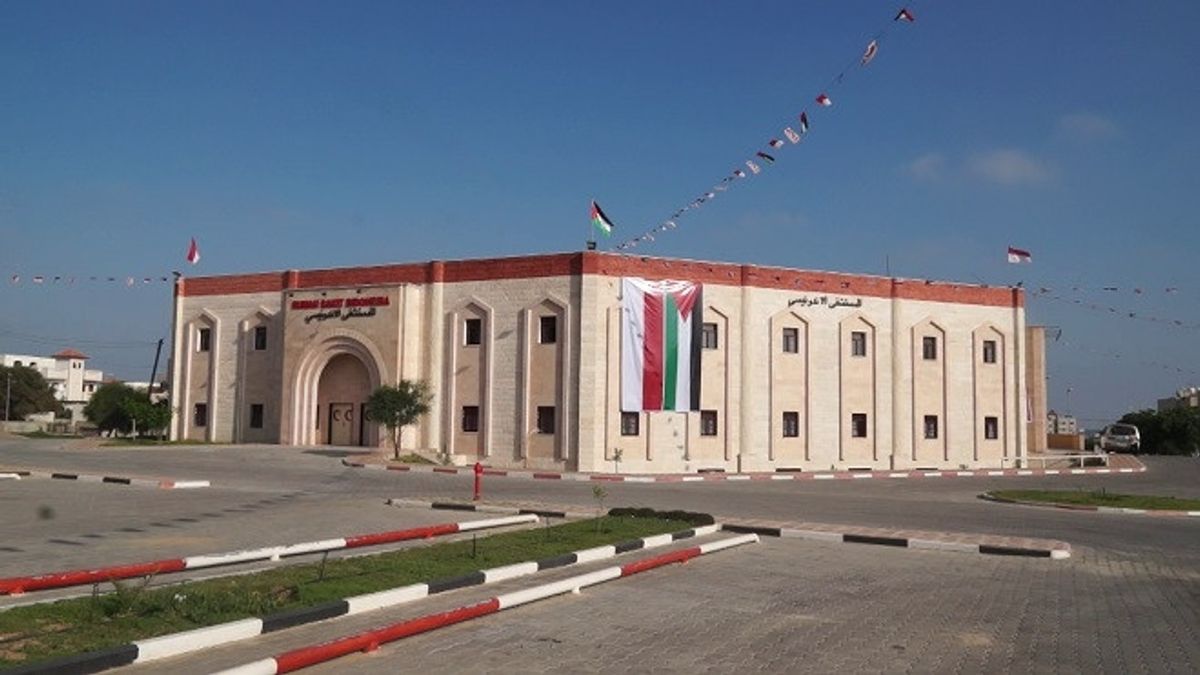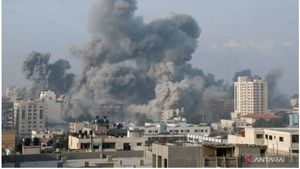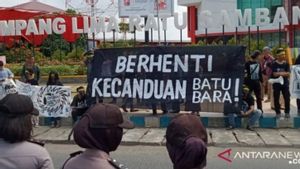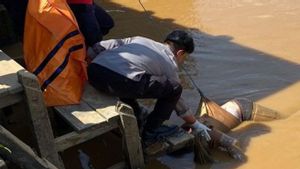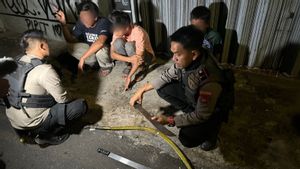JAKARTA The situation in Gaza has deteriorated since the outbreak of the Hamas attack on Israel on 7 October. Even health facilities such as hospitals did not escape attacks.
Hamas launched a surprise attack on Israel on Saturday (7/10/2023). The attack killed a total of 1,200 Israelis, mostly civilians.
In the aftermath of the action, Israel launched a retaliatory attack and has been going on for almost a month.
Israel's repeated attacks on the Gaza Strip destroyed houses and claimed thousands of lives.
According to the Ministry of Health (Kemenkes) managed by Hamas in Gaza, the death toll has now surpassed eight thousand people.
The death toll from Israeli aggression has surpassed 8,000, one of whom is children, the ministry said, reported by AFP, Sunday (29/10/2023).
But more heartbreakingly, the hospital was also inseparable from the target of the Israeli military force attack, one of which was the Indonesian Hospital.
Indonesian hospitals are one clear proof of the support of Indonesians for Palestine, which has continued to be involved in conflicts with Israel.
Reported by the official Medical Emergency Rescue Committee (MER-C) website, the Indonesian Hospital is located in Bayt Lahiya, North Gaza. The 16,261 m2 hospital is a donation from the Government of Indonesia, while all the funds for the construction of this hospital come from donations from the Indonesian people.
"For this reason, this hospital is named the Indonesian Hospital (RSI) in the hope that it can be evidence of a long-term friendship between the Indonesian people and the Palestinian people," as quoted bymer-c.org.
The construction of the Indonesian Hospital began with an Israeli attack on the Gaza Strip in mid-2008. At that time, the MER-C medical team and the Indonesian Government's medical team departed for the Gaza Strip with the aim of distributing aid to the victims.
As a war area, Gaza only has one rehabilitation hospital. It did not escape the attack of the Israeli army, giving rise to an initiative from the MER-C to build a hospital in the Gaza Strip.
The plan to build a hospital in the area received the green light after a meeting with the then Palestinian Health Minister, Bassim Naim, in the Gaza Strip.
Started construction on May 14, 2011, the Indonesian Hospital was inaugurated on December 27, 2015 by the Vice President of Indonesia during that period, Jusuf Kalla. With facilities of around 100 inpatient beds, four operating rooms and 10 intensive care rooms, the Indonesian Hospital is one of the largest in Gaza.
In the midst of the heated situation again between Israel and Palestine, the Indonesian Hospital became one of the evacuation sites for Al-Awdeh Hospital patients when the Israeli army warned that the hospital would be bombed on October 13.
But two weeks later, the Indonesian Hospital was also affected by the Israeli military attack on the Gaza Strip either by sea, land, or air.
"As a result of the loud bomb boom, the pieces of sand and iron that bounced into the Indonesian Hospital where we were," said Fikri Rofiul Haq, a MER-C volunteer from Indonesia via voice message received in Jakarta, Tuesday (31/10/2023).
The condition of this hospital is getting worse. Quoting Al-Jazeera, a volunteer at the Indonesian Hospital said at least 870 people died and 2,530 people were treated for injuries at this hospital until October 31, 2023.
This condition was exacerbated because the power outages that occurred in the Gaza Strip made doctors have to undergo surgery and medical action in a dark state.
Israeli military attacks on health facilities have come under fire from various parties, including the Executive Board of the Indonesian Doctors Association (IDI). Together with World Medical (WMA) or the World Medical Association, PB IDI issued an urgent call to all parties in conflict to comply with International Humanitarian Law (IHL) norms not to attack medical facilities and health workers' vehicles, as well as protect health workers.
Chairman of PB IDI, DR. dr. Moh. Adib Khumaidi, SpOT strongly condemns attacks on health facilities and medical personnel and asks all parties to ensure that medical personnel and health workers are not targeted and given safe access to treat injured victims.
"As doctors, we have an ethical obligation to put the safety of patients and the civil society above all else," Adib explained.
SEE ALSO:
The English, Chinese, Japanese, Arabic, and French versions are automatically generated by the AI. So there may still be inaccuracies in translating, please always see Indonesian as our main language. (system supported by DigitalSiber.id)
